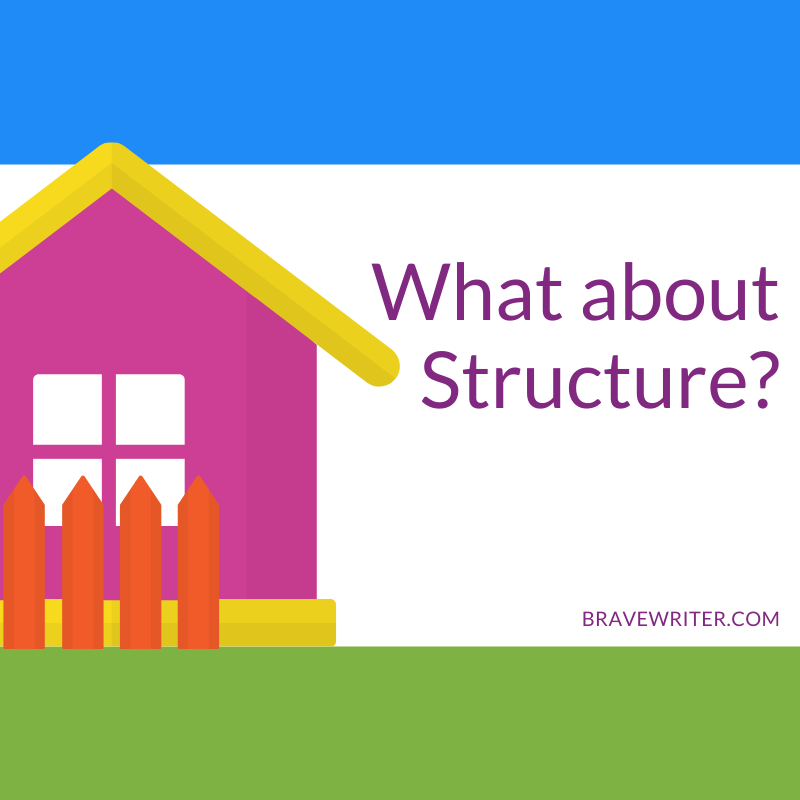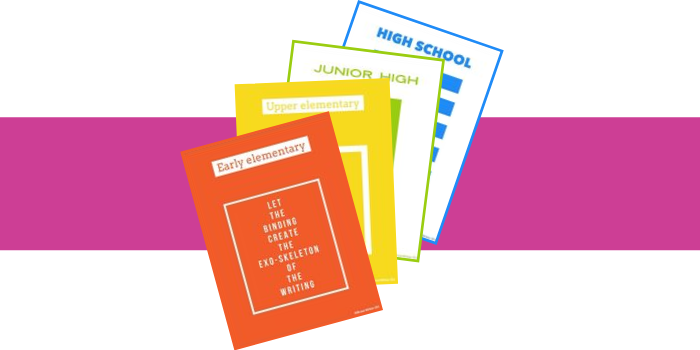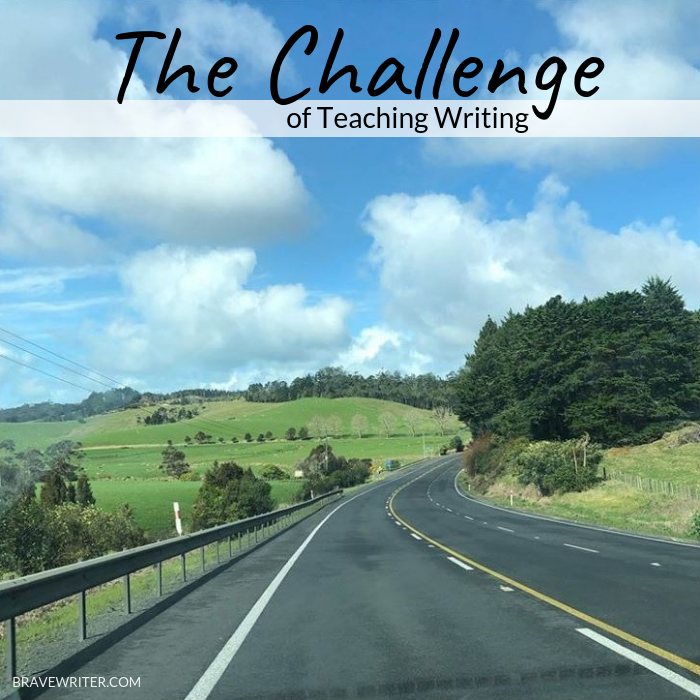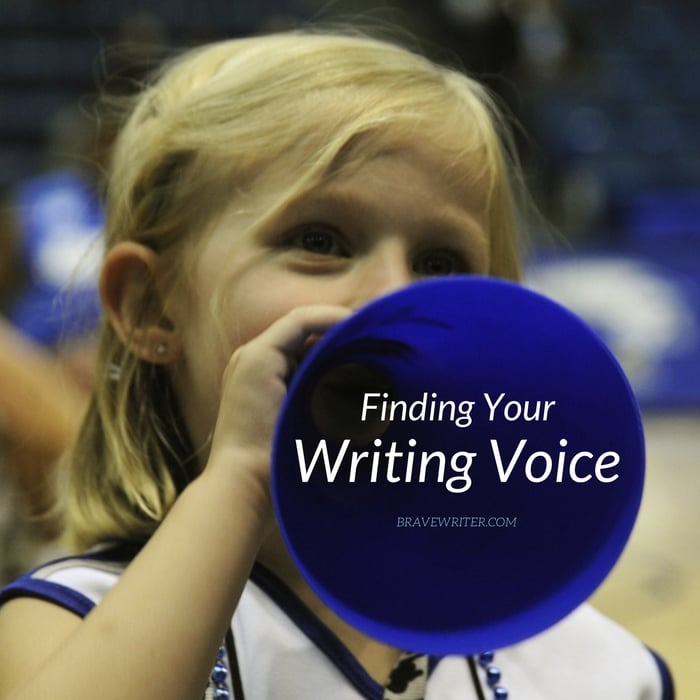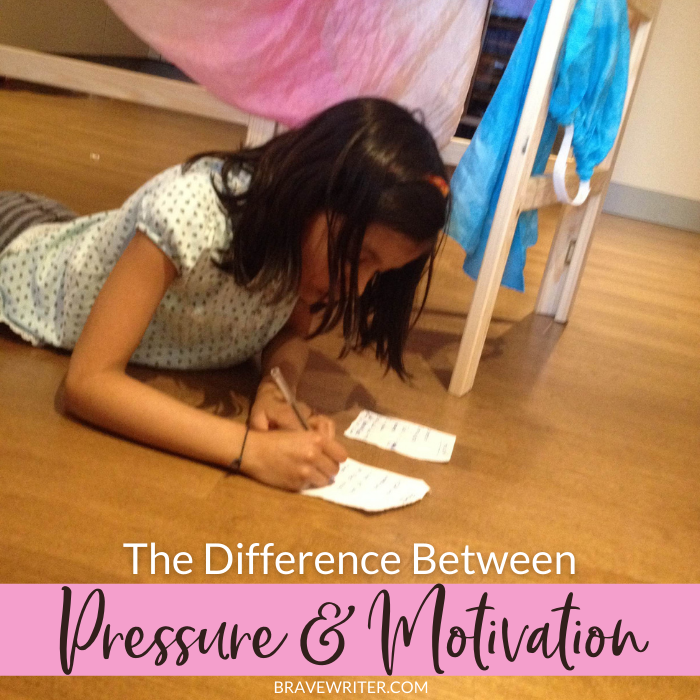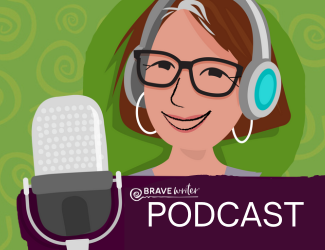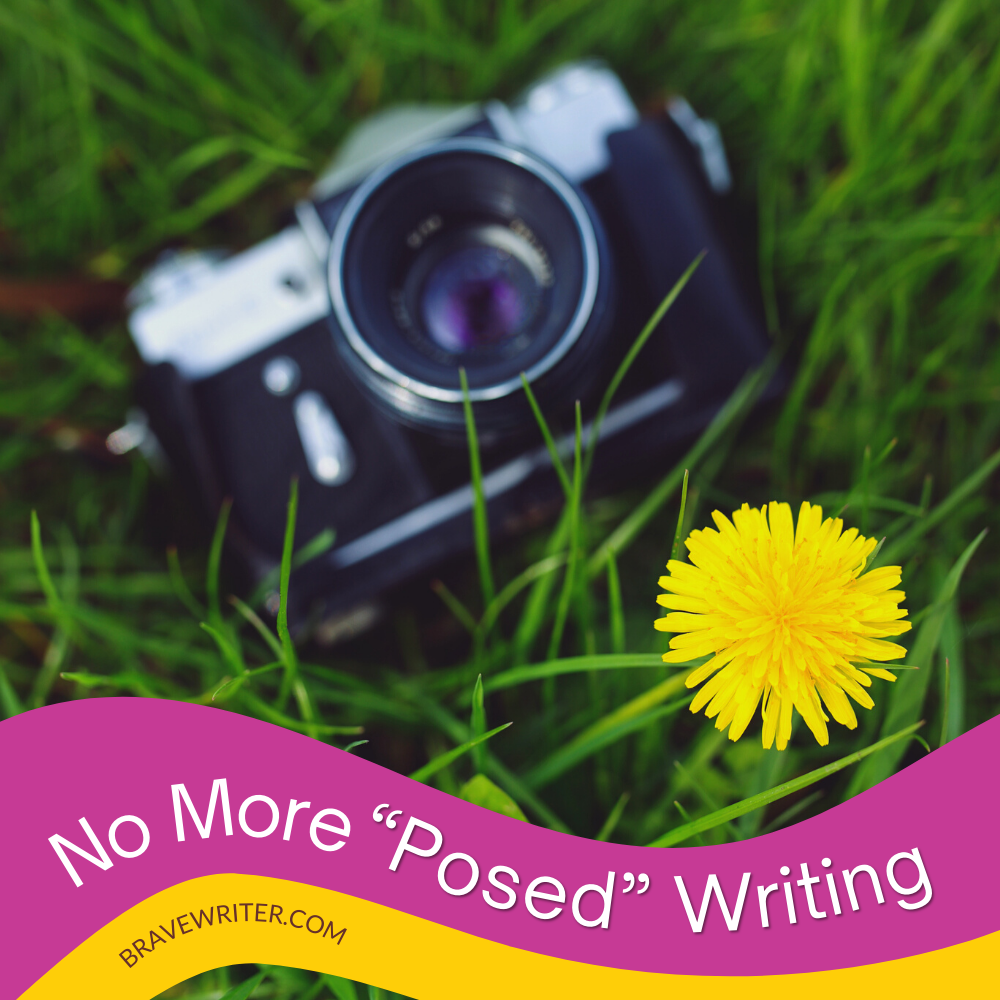
Would you rather believe that stiff, lifeless prose that matches a format, achieved through tears, tantrums, and trauma will result in better writing than tapping into your child’s quirky, insightful, natural personality?
I have a million photos of my kids. My 5 are forever hoisting one big kid sideways in celebration of a life event.
I love them, even when the faces are blurry.
But I have one well-posed photo that we all hate. The photo shows smiling faces. The family is arranged just so. And it’s lifeless. Cringe.
Something Worth Saying
When I think about writing that I love reading, it has vibrancy and surprise.
Can you imagine what would happen if you believed your child had something worth saying and that your only job is to capture it like a candid photograph—a snapshot of their inner life, at this moment in time?
Did you realize that the writing your child does (from their tender heart or their silly sense of humor or their fact-packed mind) IS the snapshot of their person that will preserve who they are for you even better than silly photographs and family portraits?
So if you’re tired of format-driven writing and tears and tantrums, unlock the beautiful minds of your children instead.
No more “posed” writing.
Time for powerful writing!


